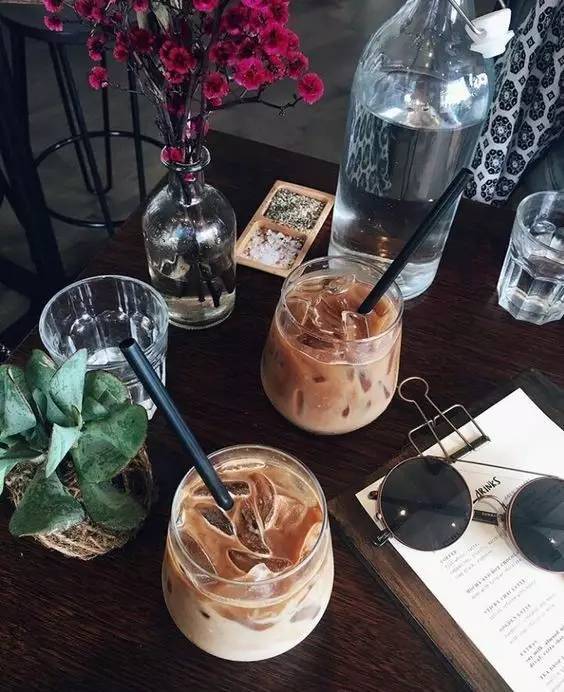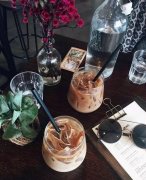Indonesian West Java flavor describes which brand of Indonesian West Java coffee is good.

For professional baristas, please follow the coffee workshop (Wechat official account cafe_style)
Honey treatment keeps the coffee clean after washing, and although the brightness of the coffee decreases, it increases the sweetness and caramel taste. According to the different degree of honey treatment, honey-treated coffee can be divided into yellow honey treatment, red honey treatment and black honey treatment. The advantage of honey treatment is that it can best preserve the original sweet flavor of ripe coffee, giving the coffee a light black sugar flavor and drupe flavor, while the berry flavor also supports the basic aroma of red wine, which is considered to be a very elegant product.
Variety: Jember, SMI 795
Altitude: 1400 Murray 1600m
Flavor: fruity, plum, jackfruit flavor, sweet and sweet
West Java, Indonesia
The coffee beans are picked from the branches and separated from the fruit, rinsed and then dried. Coffee beans diserok every hour to dry evenly, including midnight. "it's at night that it's very important because of the high humidity," says Arief, who turned coffee (Aug. 5, 2014)-Indonesian original machine translation.
The coffee was processed for 25-26 days! Not surprisingly, the price of coffee beans Aromanis is a little more expensive than regular coffee beans. Coffee farmers' professional cooperatives sell coffee bean raw materials Aromanis 130000-150000 rupees per kilogram, while mutated coffee is offered at a retail price of 80000 rupees, 200g per pack.
Factory name: coffee factory address: Guangzhou Yuexiu District Dongshankou Baoqian Street coffee manufacturers contact information: 38364473 shelf life: 90 net content: 227g packaging: bulk coffee beans ripe degree: whether coffee beans contain sugar: sugar-free origin: Indonesia roasting degree: light roasting
West Java by hand. 15g powder, medium grinding (small Fuji ghost tooth cutter 4 grinding), v60 filter cup, 88-89 degrees water temperature, 30g water injection for the first time, steaming for 27 seconds, water injection to 105g water cut off, wait for the amount of water in the powder bed to reach half and then water injection, slow water injection until 225g water, no water powder ratio at the end, 1:15, extraction time 2:00
West Java Honey Processing Aromanis
Country: Indonesia
Manor: Eleanor
Producing area: Tiegula Mountain
Baking degree: shallow baking
Treatment method: honey treatment
West Java Province is a first-tier administrative district of Indonesia. Located in the western part of Java, facing the Java Sea to the north and the Indian Ocean to the south, including offshore islands, covering an area of 46300 square kilometers, Java has a tropical rain forest climate, which is hot and humid all the year round. The plains along the northern coast have the highest temperatures, while the mountains are much cooler. High humidity often creates a debilitating climate.
From November to March of the following year is the northwest monsoon period, rainy and cloudy; from 4muri to October is the southeast monsoon period, with more sunny days and less rainfall. The average annual rainfall in Jakarta is about 1760 mm (69 inches). The average daily maximum temperature in Jakarta is 30 ℃ (86 ℉) and the lowest is 23 ℃ (74 ℉). In the inland highlands of Tosari (Tosari, 1735 meters (5692 feet) above sea level), the average temperature is 22 ℃ (72 Murray 47 ℉). Because volcanic ash periodically fertilizes the land, the soil in Java is very fertile.
Aromanis "Aiqini" is a traditional dessert unique to Indonesia. It is made from a snack made from the basic ingredients of flour and sugar. Here, the coffee is named after Aromanis, indicating that the coffee bean tastes like marshmallows. But coffee beans come from West Java and Ciwidey Garut. In fact, there are no special coffee seeds used, but tanned coffee can show such a chic flavor, which is, of course, not recognized in West Java, Indonesia.
Producing area: Tiegula Mountain, Indonesia
Altitude: 1400 Murray 1600m
Baking degree: shallowness
Treatment method: honey treatment
Taste description: strong fruity, with plum and jackfruit flavor, clean and sweet back to sweet.
Flavor: complex floral aromas, with tropical fruit flavors like mango and jackfruit on the palate. The palate is soft and sweet.
West Java honey treated West Java Honey Processing
The score of the cup test is as high as 92 points. The English name of the bean Aromanis is Indonesian, which means sweet mango.
At the manor, we tasted very different Indonesian coffee.
The farmers make us their coffee in the simplest way of soaking in hot water.
Careful planting and treatment
Let the flavor of coffee get rid of the established frame of Indonesian coffee.
Sweet fruit, lemon, even flowers
Are vigorously presented in different varieties one by one.
It really subverts what we think is sweet and bitter.
[honey treatment]
Honey treatment, called HoneyProcess or Miel Process, is used in coffee gardens in Costa Rica (Costa Rica), Panama (Panama) and Guatemala (Guatemala), which is called Honey Coffee. The so-called honey treatment refers to the process of making raw beans with mucous membrane for sun-drying. After the outer pulp of the coffee bean is removed, there will be a layer of sticky jelly. The traditional washing method washes it away with clean water, but this direct drying method has been born because of the limitations of water resources in some high-altitude areas.
Honey treatment is a complex, time-consuming and difficult processing method. The first step is to select high-quality fruit, and then peel off the pulp to leave the endocarp, where the endocarp is the core of honey treatment. The endocarp is rich in sugar and sour taste, which will slowly seep into the coffee beans during the drying process. The second step is drying, which is the most important condition for the production of high-quality coffee beans.
Important Notice :
前街咖啡 FrontStreet Coffee has moved to new addredd:
FrontStreet Coffee Address: 315,Donghua East Road,GuangZhou
Tel:020 38364473
- Prev

What's the taste of Indonesian West Java? how do you brew Indonesian West Java coffee?
Professional baristas please follow the coffee workshop (Wechat official account cafe_style) West Java, Indonesia, coffee beans are picked from the branches and separated from the fruit, rinsed and then dried. Coffee beans diserok every hour to dry evenly, including midnight. It is at night that this is very important, because Arief, who has turned into coffee with high humidity, says so.
- Next

Indonesia West Java drink correctly the price of Indonesian West Java coffee beans
For professional baristas, please follow the coffee workshop (Wechat official account cafe_style) [honey treatment] Honey treatment, called HoneyProcess or Miel Process, is used in coffee gardens in Honey Coffee, Costa Rica, Panama (Panama) and Guatemala (Guatemala). The so-called honey treatment means
Related
- Detailed explanation of Jadeite planting Land in Panamanian Jadeite Manor introduction to the grading system of Jadeite competitive bidding, Red bid, Green bid and Rose Summer
- Story of Coffee planting in Brenka region of Costa Rica Stonehenge Manor anaerobic heavy honey treatment of flavor mouth
- What's on the barrel of Blue Mountain Coffee beans?
- Can American coffee also pull flowers? How to use hot American style to pull out a good-looking pattern?
- Can you make a cold extract with coffee beans? What is the right proportion for cold-extracted coffee formula?
- Indonesian PWN Gold Mandrine Coffee Origin Features Flavor How to Chong? Mandolin coffee is American.
- A brief introduction to the flavor characteristics of Brazilian yellow bourbon coffee beans
- What is the effect of different water quality on the flavor of cold-extracted coffee? What kind of water is best for brewing coffee?
- Why do you think of Rose Summer whenever you mention Panamanian coffee?
- Introduction to the characteristics of authentic blue mountain coffee bean producing areas? What is the CIB Coffee Authority in Jamaica?

